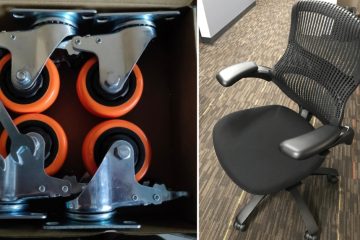Ever wondered who’s behind the scenes, making sure your voice counts in elections? Meet the unsung heroes of local politics: precinct chairs. These grassroots leaders are the backbone of political parties, working tirelessly to engage voters and strengthen democracy from the ground up.
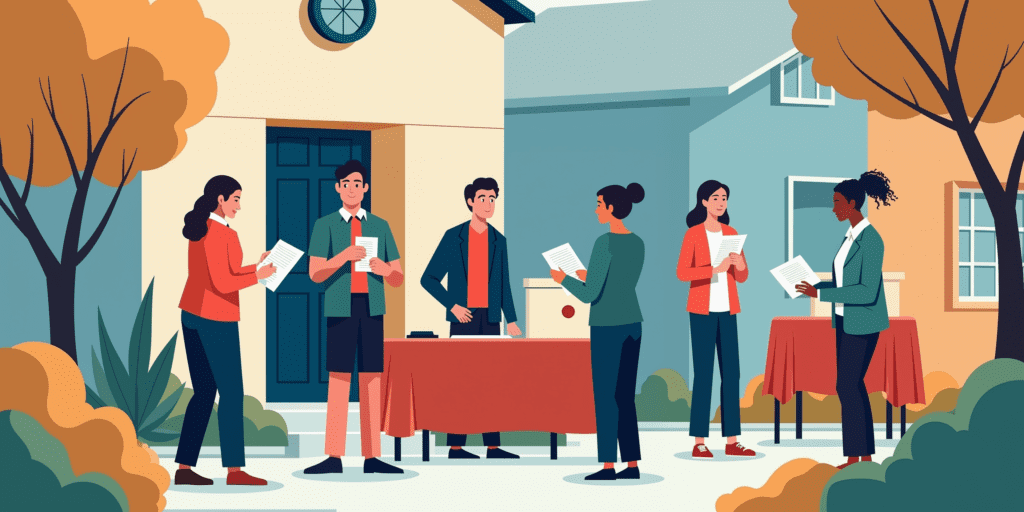
Key Takeaways:
- Precinct chairs conduct voter outreach, register voters, organize turnout efforts, and support local candidates
- They serve as vital links between voters and party leadership
- Effective precinct chairs can significantly boost voter participation and strengthen local party infrastructure
- The role requires dedication, relationship-building, and adapting to leverage new technologies and methods
- Precinct chairs prove that committed individuals can make a real difference in strengthening democracy at the local level
What’s a Precinct, Anyway?
Think of a precinct as your political neighborhood. It’s the smallest unit in the electoral system, typically encompassing a few blocks or a small community. Precincts form the building blocks of larger political districts and play a crucial role in organizing voters and managing elections.
The Precinct Chair’s Toolbox
Voter Engagement: The Heart of the Job
Precinct chairs are the friendly faces of their political parties in the community. They knock on doors, make calls, and organize local events to connect with voters. It’s not all handshakes and small talk, though. These dedicated individuals provide valuable information about candidates, issues, and the voting process.
They’re also the go-to people for answering questions about polling locations, voting hours, and election procedures. During election season, you might find them organizing rides to the polls or reminding folks to mail in their ballots.
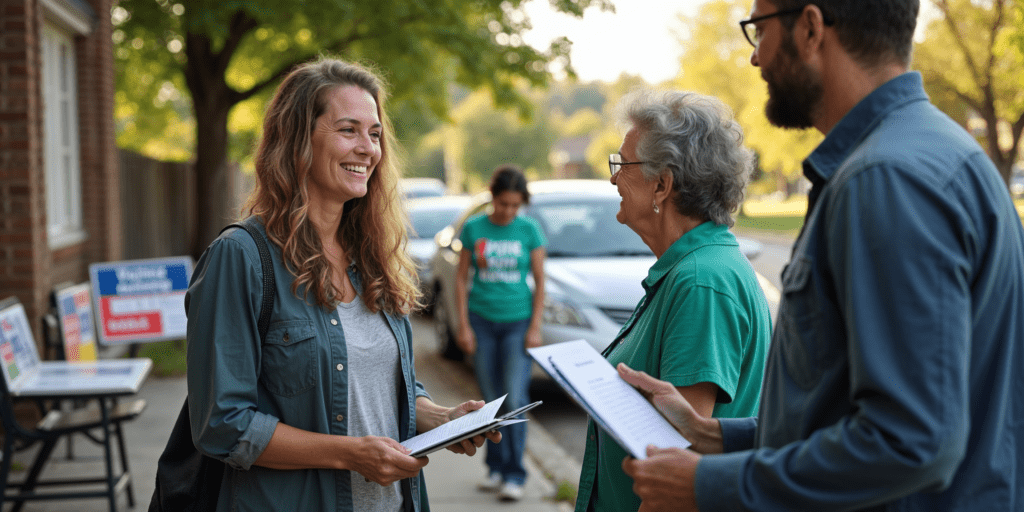
Voter Registration: Growing the Electorate
One of the most impactful tasks for precinct chairs is registering new voters. They’re often spotted at community events, clipboard in hand, ready to help eligible citizens join the ranks of registered voters. But their work doesn’t stop there. They also educate people about their voting rights and the importance of civic participation.
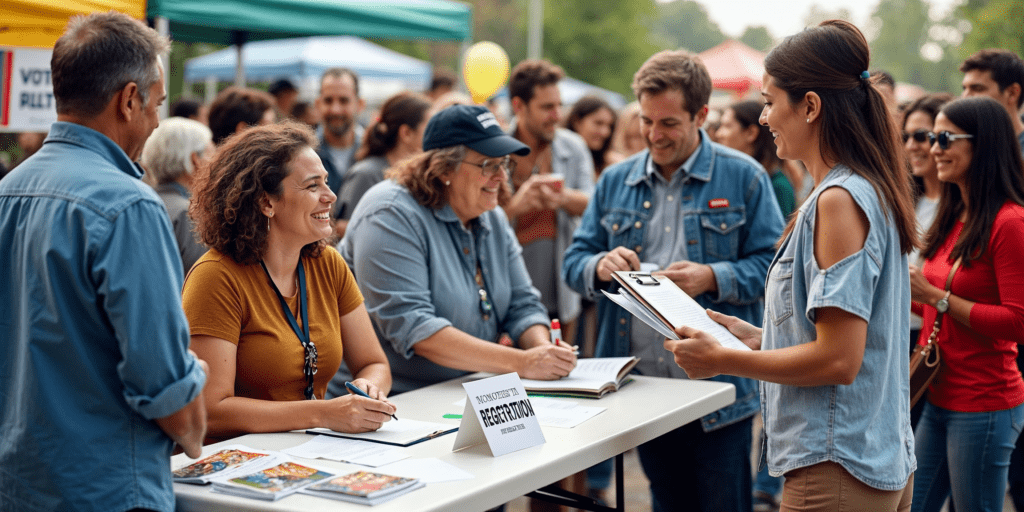
Get Out The Vote: The Election Day Sprint
When election day rolls around, precinct chairs kick into high gear. They coordinate volunteers, monitor turnout, and troubleshoot any issues that arise. Their efforts can make a real difference in close races, especially in local elections where every vote truly counts.
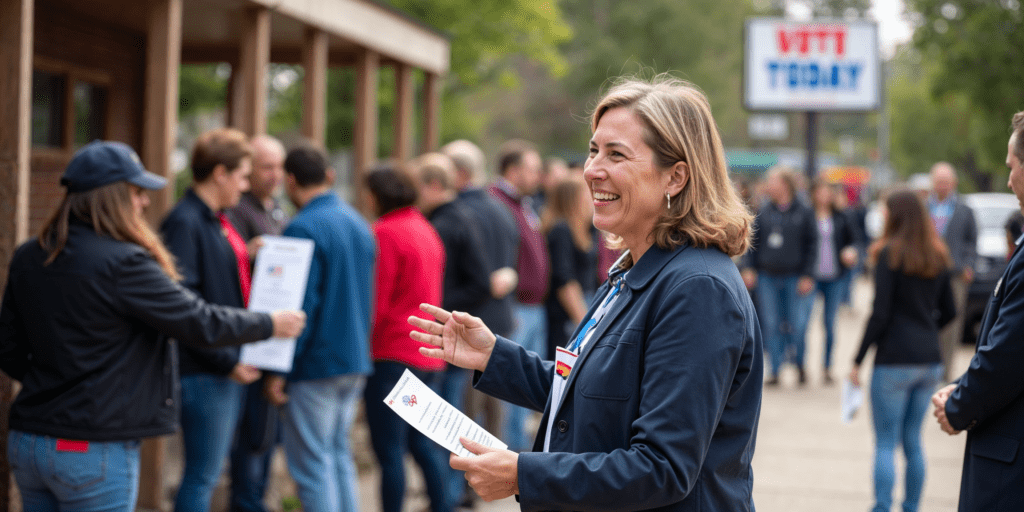
Party Representation: Bridging the Gap
Precinct chairs serve as members of their county’s executive committee, attending regular meetings and helping shape party policies. They’re the vital link between voters and party leadership, ensuring that local concerns are heard and addressed.

Candidate Support: Nurturing Future Leaders
Got a neighbor who’d make a great city council member? Precinct chairs often spot and nurture local talent, encouraging community members to run for office. They also support candidates by organizing meet-and-greets and providing valuable insights into local issues.

Tech-Savvy Organizing
Today’s precinct chairs aren’t just pounding the pavement. They’re leveraging technology to streamline their work. From voter databases to mobile canvassing apps, these tools help chairs target their outreach and track their progress.
The Impact of Effective Precinct Chairs
When precinct chairs excel, the results are clear. Voter turnout increases, local party infrastructure strengthens, and the community becomes more politically engaged. It’s not just about winning elections – it’s about building a more informed and active citizenry.
Take the case of Jane Smith, a precinct chair in a historically low-turnout area. Through persistent outreach and community-building efforts, she managed to double voter participation in her precinct over two election cycles. Her secret? Building genuine relationships with her neighbors and addressing their concerns year-round, not just during campaign season.
Facing the Challenges
Being a precinct chair isn’t all smooth sailing. These dedicated volunteers often face voter apathy, limited resources, and the challenge of balancing their civic duties with personal commitments. In today’s polarized political climate, they must also navigate sometimes tense conversations with neighbors who hold different views.
Becoming a Precinct Chair
Inspired to take on this crucial role? Here’s the scoop:
- Check your eligibility: You’ll need to be a registered voter in your precinct and typically a member of the party you’ll represent.
- Reach out to your local party organization: They’ll guide you through the application process.
- Get ready to run: In many areas, precinct chairs are elected during primary elections. In others, you might be appointed to fill a vacancy.
- Learn the ropes: Most party organizations offer training for new precinct chairs.
The Future of Grassroots Organizing
As our communities evolve, so does the role of precinct chairs. They’re adapting to changing demographics, embracing new outreach methods, and playing a critical part in safeguarding election integrity.
The Power of Local Leadership
Precinct chairs prove that one person can make a real difference in their community. By bridging the gap between voters and the political process, they strengthen the foundation of our democracy. Whether you’re considering becoming a precinct chair or simply want to get more involved in local politics, remember: change starts in your neighborhood.
So, the next time you see a neighbor knocking on doors or setting up a table at your local farmers market to register voters, give them a nod. They might just be your local precinct chair, working hard to keep our democracy strong, one conversation at a time.


